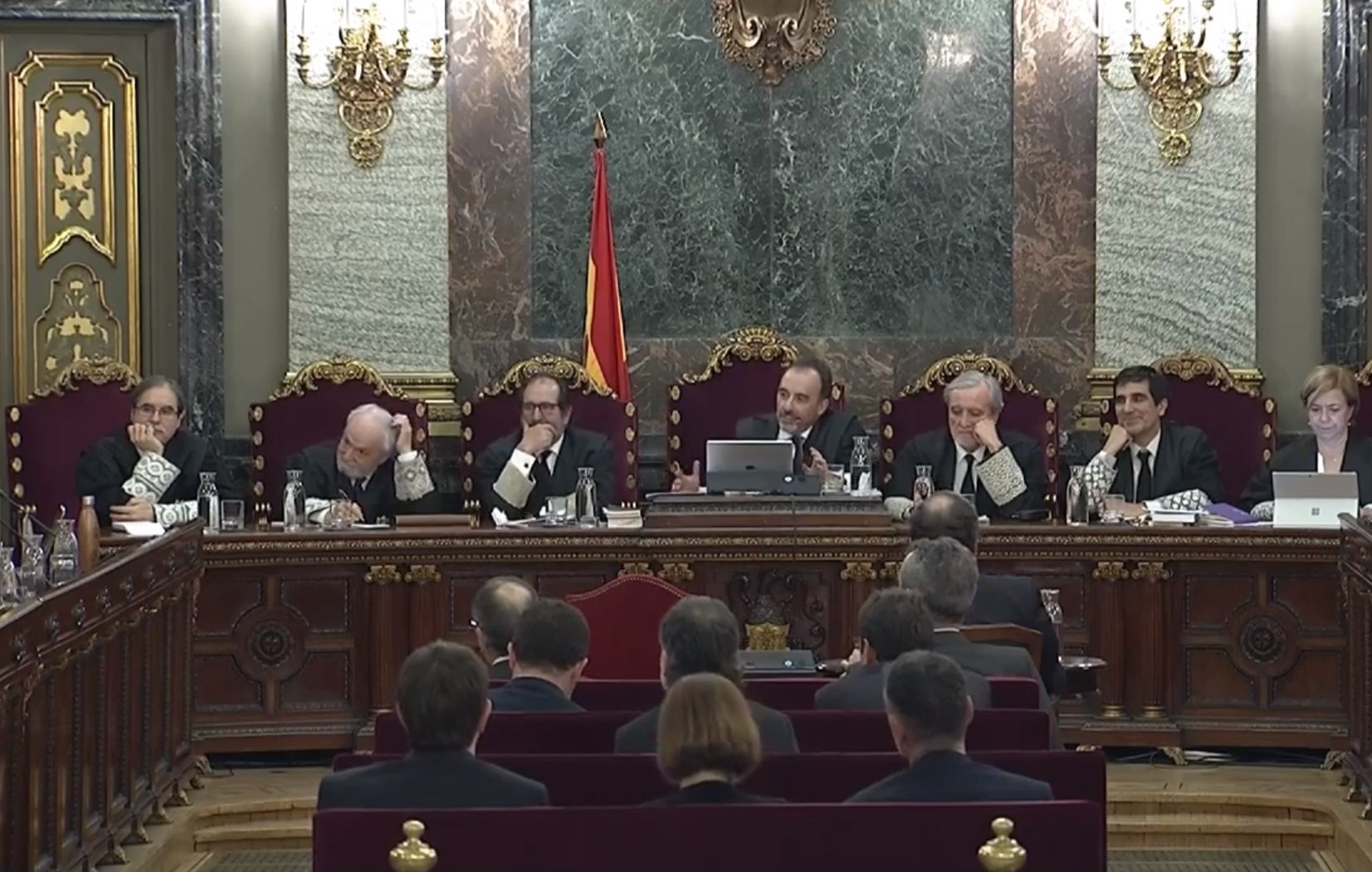Ten appeals, ten rejections. The Spanish Constitutional Court has reported today that it has concluded the resolution of the ten appeals for constitutional protection filed against the sentence of the Supreme Court, of October 14th, 2019, in the trial against the Catalan independence leaders over the events of autumn 2017. As expected, the court did not uphold the latest appeals from former Catalan government ministers Dolors Bassa and Joaquim Forn, and, as was the case yesterday with those of Junqueras and Romeva, three judges (Juan A. Xiol, María Luisa Balaguer and Ramón Sáez) gave dissenting opinions against the sentences pronounced in 2019, when Spain's high court dictated sentences of between nine and 13 years imprisonment: for sedition and misuse of public funds, to former Catalan vice-president Oriol Junqueras and former ministers Raül Romeva, Jordi Turull, and Dolors Bassa; for sedition, to the speaker of the Catalan Parliament, Carmen Forcadell, the ex-ministers Joaquim Forn and Josep Rull, and the pro-independence NGO leaders Jordi Sànchez and Jordi Cuixart; and imposing fines for offences of disobedience, to the ex-ministers Carles Mundó and Meritxell Borràs. Spain's Constitutional Court, in addition, has released a series of explanatory tables on the appeals and their grounds, "as indicated" by court president Pedro González-Trevijano aimed at dissemination of the court's work. This is the jurisprudence against the Catalan independence process.
The Constitutional Court argues that it rejected all requests for constitutional protection, albeit with increasing division within the court itself as time went on. It states that "it does not consider contrary to the principle of criminal law the criterion of the Supreme Court which it maintains in its decision on the appeals over the terms in which the offence of sedition is defined", and which, says the court, " is not affected by any vagueness that would prevent a clear understanding of the criminally reprehensible conduct". It adds that the Supreme Court "has followed the precept [under which] those who commit a crime of sedition rise up publicly by means of the tumultuous action of a crowd that uses force or extra-legal means to prevent the application of the laws or the legitimate exercise of their functions by any authority or civil servant in the fulfillment of judicial resolutions". In short, the wording of article 544 of the Spanish Penal Code "does not impede one from understanding in advance the conduct that constitutes the crime of sedition for which the appellants have been convicted, so that the precept that was applied adequately preserves the principle of legal certainty," the court concludes.
Breaches
The Constitutional Court also states that the conduct of the Catalan pro-independence leaders "exceeds the limits of what can be considered a legitimate exercise of freedom of expression and ideology and the rights of assembly and demonstration for the externalization of protest against or criticism of the action of the public authorities". And it asserts that "the sentences imposed did not have a dissuasive effect on the exercise of those fundamental freedoms and rights, since the appellants' conduct exceeded the scope of their protection." In this regard, the court rules out that "criminal proceedings and convictions respond to a spurious purpose of persecution or punishment of the plaintiffs for their political positions, because the Catalan independence movement is not subject to persecution or discriminatory treatment by the Supreme Court or by any other judicial or public authority of the state."
A radically opposed view is expressed by the dissenting judges of the court, Xiol, Balaguer and, now, Sáez, who, according to their first dissenting opinions, consider the punishment imposed to be disproportionate and dissuasive. Their detailed arguments have not yet been released. There is an additional note that in the case of Oriol Junqueras' appeal for constitutional protection, they consider that it should also have been upheld, because the Supreme Court should have suspended the criminal proceedings as a result of the raising of three preliminary questions before the European Court of Justice, requested by his lawyer Andreu van den Eynde, and consequently, it should have postponed the sentencing in the 2019 trial until the European court had resolved the questions, which it did on December 19th, 2019, two months after the Supreme Court's conviction of the former Catalan vice-president.
Inaccurate
Without the full text of the dissenting votes still to come, the court did however report that judge Ramon Sáez Valcárcel cast a separate vote on the rulings resolving the appeals by Bassa, Junqueras, Romeva and Forn. In opposition to the majority of the court, Sáez "questions the sentence appealed, in relation to the right to the presumption of innocence, due to the justification of the evidence and the factual motivation it contains, as well as due to the inaccuracy of the principal actions and conduct attributed to the plaintiffs". He also considers that "the criminal definition of the offence of sedition is affected by vagueness and the defining concept that the Supreme Court drafts based on this is guilty of the same defect." These ambiguities, he says, are projected onto the subsumption of the appellants' conduct. In addition, in line with the dissenting votes of judges Xiol and Balaguer, Saéz considers that the appeals for constitutional protection should also have been upheld due to the "disproportionate nature of the sentences imposed."
With the nine political prisoners having been partially pardoned since last summer, their cases will now go to the European Court of Human Rights (ECHR).

